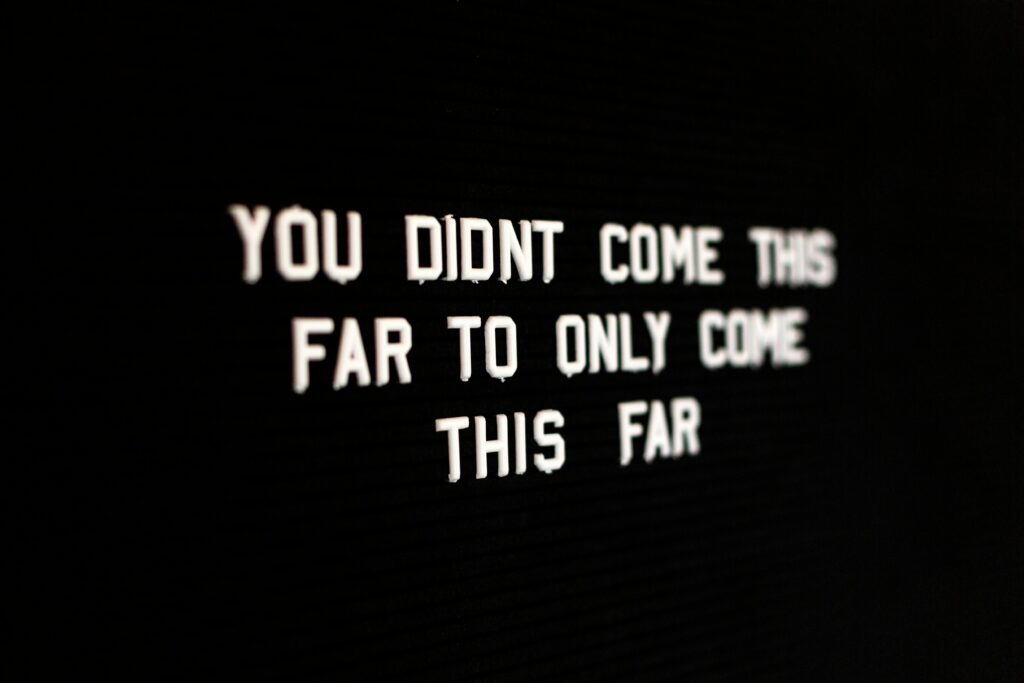Introduction
What are common dieting mistakes? Why do people make them?
Alright, let’s unpack the mystery behind those pesky common dieting mistakes and why we humans keep falling for them, shall we?
First off, what even are these common dieting mistakes we keep hearing about? Well, think of them as the pitfalls that trip us up on our journey to healthier eating habits. They’re like little traps that we stumble into without even realizing it.
Now, why on earth do we make these dieting mistakes? It’s like we’re setting ourselves up for failure, right? But fear not, there’s a method to this madness.
One big reason we make these common dieting mistakes is simply because, well, they’re common! We see our friends, family, and even celebrities hopping on the latest diet craze, and we can’t help but want to join in on the fun. It’s like being part of a trendy club where everyone’s sipping green smoothies and swearing off carbs.
Then there’s the allure of quick fixes. We live in a world where we want everything fast—fast food, fast internet, fast results. So when we see those flashy diets promising to help us shed pounds in record time, we’re all too eager to give them a try. Who has time for slow and steady when you can have instant gratification, right?
And let’s not forget about our good friend, temptation. We’re bombarded with ads for deliciously unhealthy foods everywhere we look, from TV commercials to billboards to social media. It’s like they’re whispering sweet nothings in our ears, tempting us to indulge in just one more slice of pizza or one more scoop of ice cream.
But perhaps the biggest reason we make these dieting mistakes is because, well, we’re only human. We’re not perfect, and we’re bound to slip up every now and then. Breaking old habits and forming new ones takes time and effort, and let’s face it, sometimes we’re just not up for the challenge.
So there you have it, the lowdown on why we make those common dieting mistakes. But fear not! With a little awareness and a whole lot of determination, we can navigate our way through the maze of temptation and emerge victorious on the other side. Now, who’s ready to conquer those dieting mistakes like a boss?
1. Not Eating Enough
Let’s talk about one of the sneakiest common dieting mistakes out there: not eating enough. It might sound counterintuitive—after all, isn’t eating less supposed to help us lose weight? Well, not necessarily.
When we don’t eat enough, our bodies go into survival mode. They start conserving energy, slowing down our metabolism, and holding onto every last calorie for dear life. It’s like our bodies are saying, “Hey, where’s the food at? We need fuel to function!”
But that’s not all. When we skimp on meals or drastically cut back on calories, we’re also missing out on essential nutrients that our bodies need to thrive. We’re talking vitamins, minerals, and all that good stuff that keeps us healthy and happy.
Now, let’s talk about the consequences of this common dieting mistake. When we don’t eat enough, we’re not just depriving our bodies of fuel—we’re also setting ourselves up for a whole host of problems. We might start feeling sluggish and fatigued, like we’re running on empty. Our concentration might take a hit, and our mood might take a nosedive. And let’s not forget about the dreaded hangry monster that rears its ugly head when we least expect it.
But perhaps the scariest consequence of not eating enough is the toll it takes on our metabolism. When our bodies don’t get enough food, they start burning fewer calories to conserve energy. It’s like putting the brakes on our metabolism, making it harder and harder to lose weight in the long run.
So there you have it, the lowdown on why not eating enough is one of the sneakiest common dieting mistakes out there. But fear not! With a little mindfulness and a whole lot of self-care, we can break free from this trap and nourish our bodies the way they deserve. Now, who’s up for a delicious, nutrient-packed meal?
2. Relying on Fad Diets
Let’s dive into the wild world of fad diets—one of the most notorious common dieting mistakes out there. You know the ones I’m talking about—the cabbage soup diet, the grapefruit diet, the baby food diet…the list goes on and on. But why do so many of us fall for these flashy fads?
Well, for starters, they promise quick results with minimal effort. Who wouldn’t want to shed pounds overnight without breaking a sweat, right? It’s like waving a magic wand and watching the weight disappear before our very eyes.
But here’s the thing about fad diets: they’re about as reliable as a chocolate teapot. Sure, you might drop a few pounds initially, but it’s usually just water weight, not fat loss. And once you go back to your normal eating habits, those pounds come creeping back faster than you can say “kale smoothie.”
Not to mention, fad diets often require us to eliminate entire food groups or severely restrict our calorie intake. Not only is this unsustainable in the long run, but it can also lead to nutrient deficiencies and mess with our metabolism. It’s like trying to build a house with only half the tools—you’re bound to run into problems eventually.
And let’s not forget about the mental toll of relying on this common dieting mistake. Constantly hopping from one diet to the next can create a cycle of guilt and shame around food. We start to see certain foods as “good” or “bad,” and we beat ourselves up every time we indulge in something deemed off-limits. It’s like being stuck in a never-ending game of dietary whack-a-mole.
So, what are the consequences of relying on fad diets? Well, besides the physical consequences like nutrient deficiencies and metabolism slowdown, there’s also the emotional toll to consider. Fad diets being one of the common dieting mistakes can mess with our relationship with food and our body image, leaving us feeling frustrated and defeated.
But fear not! There’s a better way to approach weight loss—one that doesn’t involve gimmicky fad diets or extreme restrictions. It’s all about finding balance, listening to our bodies, and making sustainable changes that we can stick with for the long haul. So let’s ditch the fads and focus on nourishing our bodies with wholesome, delicious foods instead. Who’s with me?
3. Skipping Meals (Typically, the most common dieting mistake)
Alright, let’s tackle the classic blunder of skipping meals—one of the most common dieting mistakes in the book. You know how it goes: life gets busy, you’re running from one thing to the next, and suddenly it’s lunchtime and you realize you haven’t eaten since breakfast. Sound familiar?
So, why do so many of us fall into the trap of skipping meals? Well, for starters, it seems like a quick and easy way to cut calories and lose weight, right? I mean, if you’re not eating, you’re not consuming any calories, so you must be losing weight—simple math, right?
But here’s the thing: our bodies are smarter than we give them credit for. When we skip meals, our metabolism starts to slow down in an effort to conserve energy. It’s like our bodies are saying, “Whoa, hold up! We need fuel to function here!” So instead of torching fat like we hoped, we end up burning fewer calories overall.
Not to mention, skipping meals can mess with our hunger hormones, leading to intense cravings and overeating later on. Ever notice how you’re ravenous after a long day of fasting? That’s your body’s way of trying to make up for lost time.
But perhaps the biggest consequence of skipping meals is the toll it takes on our energy levels and overall well-being. Ever tried to power through a busy day on an empty stomach? It’s like trying to run a marathon with no fuel in the tank—not exactly a recipe for success.
So, what’s the takeaway here? Skipping meals might seem like a shortcut to weight loss, but in reality, it’s more likely to do harm than good. Instead of skipping meals, focus on nourishing your body with regular, balanced meals and snacks throughout the day. Your metabolism—and your sanity—will thank you for it.
4. Overeating "Healthy" Foods
Let’s chat about a sneaky little common dieting mistake that often flies under the radar: overeating so-called “healthy” foods. You know the ones I’m talking about—nuts, avocados, olive oil, you name it. Sure, these foods are packed with nutrients, but that doesn’t mean we can eat them by the truckload without consequence.
So, why do so many of us fall into the trap of overeating healthy foods? Well, for starters, they often get a halo effect. We see words like “organic,” “gluten-free,” or “superfood” plastered on the label, and suddenly we think we can eat as much as we want without consequence. It’s like we’ve got blinders on, only seeing the supposed health benefits while ignoring the fact that calories still count.
Plus, healthy foods are often delicious and satisfying, making it easy to go overboard without even realizing it. I mean, who can resist a creamy avocado or a handful of crunchy almonds? But here’s the thing: calories still add up, whether they come from kale or cookies.
Now, what are the consequences of overindulging in healthy foods? Well, besides the obvious—weight gain—there’s also the risk of nutrient imbalances and other health issues. Eating too many healthy fats, for example, can lead to digestive issues and even heart problems if consumed in excess.
Not to mention, overeating healthy foods can also mess with our perception of portion sizes and hunger cues. We start to think that because a food is “healthy,” we can eat as much of it as we want, leading to mindless munching and potential weight gain.
So, what’s the takeaway here? While it’s important to include plenty of nutritious foods in our diet, it’s also essential to practice moderation and portion control. Instead of mindlessly snacking on nuts or loading up your plate with avocado, try to be mindful of serving sizes and listen to your body’s hunger and fullness cues. Your waistline—and your health—will thank you for it.
If you’re constantly on the go and struggle to maintain a healthy diet amidst a hectic schedule, be sure to explore our blog post on meal prep tips tailored specifically for busy professionals.

5. Ignoring Nutritional Labels
Let’s discuss a common dieting mistake: ignoring nutritional labels. You know, those handy panels on the back of your favorite snacks and meals that detail calories, fats, sugars, and more.
Why do we often overlook them? Well, sometimes we get so excited about our favorite foods that we forget to check the nutritional info. It’s like portion sizes and calorie counts fly out the window when we spot something delicious.
Plus, let’s admit it, those labels can be overwhelming with percentages, serving sizes, and daily values. Instead of deciphering the information, we toss the item in our cart and move on.
But ignoring these labels can lead to consuming too many calories, unhealthy fats, and sugars without realizing it. It’s like walking blindly into a nutritional minefield.
Moreover, it can result in nutrient deficiencies and long-term health issues if we don’t pay attention to essential vitamins, minerals, and fiber.
The solution? Take time to read and understand nutritional labels before buying or eating. Look for serving sizes, calorie counts, and percentages of daily values. With this knowledge, you’ll make better-informed choices about what goes into your body. And who knows, you might even discover some new favorite foods!
6. Eating Too Fast
Let’s chat about a common dieting mistake: eating too fast. We’ve all been guilty of it—rushing through meals like we’re in a race against time, barely pausing to catch our breath. But why do so many of us do it?
We’re living in a fast-paced world where everything feels like it’s moving at lightning speed. With work, school, family, and social commitments, we hardly have time for leisurely meals. So, when mealtime arrives, we shovel food into our mouths, barely tasting or enjoying it.
However, eating too fast has serious consequences for our waistlines and health. When we scarf down our food, we don’t give our bodies time to realize we’re full, leading to overeating. It’s like we’re hitting the gas pedal on our hunger without hitting the brakes.
Plus, eating too fast can mess up our digestion. Rushing through meals prevents our bodies from properly breaking down food, causing discomfort and bloating. It’s like cramming a semester’s worth of studying into one session—it’s not a recipe for success.
The solution? Slow down and savor your meals. Chew each bite thoroughly, enjoying the flavors and textures. Put your fork down between bites, sip water, and engage in conversation. By being mindful of our eating habits, we can prevent overeating and improve digestion. So, take a deep breath, relax, and enjoy the journey of eating. Your body—and taste buds—will thank you.

7. Emotional Eating
Let’s dive into a topic that many of us can relate to: emotional or binge eating—a common dieting mistake that often stems from our emotions rather than hunger.
Picture this: you’ve had a long, stressful day, and all you want to do is curl up on the couch with a pint of ice cream or a bag of chips. Sound familiar? That’s emotional eating in a nutshell.
So, why do we turn to food when we’re feeling stressed, bored, or overwhelmed? Well, food has a way of comforting us and providing a temporary escape from whatever emotions we’re experiencing. It’s like a warm hug or a cozy blanket on a chilly day—it makes us feel better, at least for a little while.
But here’s the thing: emotional eating often leads to a vicious cycle of guilt and shame. We eat to numb our emotions, but then we feel guilty for indulging in unhealthy foods or eating more than we intended. It’s like we’re stuck in a never-ending loop of self-sabotage.
Not to mention, binge eating can also have some serious consequences for our physical health. When we consume large amounts of food in a short period, our bodies struggle to digest it all, leading to discomfort, bloating, and other digestive issues. Plus, binge eating often involves highly processed, calorie-dense foods that can contribute to weight gain and other health problems over time.
So, what’s the solution? It’s all about finding healthier ways to cope with our emotions and manage stress. Instead of turning to food, try going for a walk, practicing deep breathing exercises, or calling a friend for support. By addressing the root cause of our emotions and finding alternative coping strategies, we can break free from the cycle of emotional eating and create a healthier relationship with food and ourselves.
8. Not Drinking Enough Water
Let’s talk about a common dieting mistake: not drinking enough water. It’s like the forgotten hero of weight loss—everyone knows it’s important, but few give it the attention it deserves.
Why do many of us fall into this trap? Well, it’s easy to forget amidst our busy lives. With work, errands, and social commitments, hydration often takes a backseat. We focus on tasks and forget to listen to our bodies’ signals for thirst.
But hydration is crucial for health, especially for weight loss. When we don’t drink enough water, our bodies struggle to function properly. Dehydration can lead to fatigue, headaches, and cravings for unhealthy foods. It’s like running a car on an empty tank—not a recipe for success.
Moreover, dehydration can trick our bodies into thinking we’re hungry when we’re actually thirsty, leading to unnecessary snacking on high-calorie foods.
The biggest consequence? It slows down our metabolism, making it harder to lose weight. The solution? Drink more water! Keep a water bottle handy and sip regularly throughout the day. Aim for at least 8 glasses, but listen to your body and drink more if thirsty. Your body will thank you.
Take a look at this awesome water bottle with a time marker and straw designed to help you track your water intake effectively.
9. Lack of Exercise
Let’s talk about a common dieting mistake: lack of exercise. It’s like a missing piece of the puzzle in our weight loss journey—without it, the picture just isn’t complete.
Why do many of us skip exercise? Life gets busy, and finding time for workouts can seem impossible. We keep delaying it, thinking we’ll start tomorrow, next week, or next month—but that “tomorrow” never comes.
But here’s the deal: exercise is vital for our health, especially for weight loss. It helps burn calories, build muscle, and boost metabolism, making it easier to shed pounds and keep them off. It’s like giving our weight loss efforts a turbo boost.
Plus, exercise offers a range of other benefits like improving mood, reducing stress, boosting energy, and promoting better sleep. It’s like a magic pill for overall well-being, yet many of us neglect it for more sedentary activities.
But the biggest consequence of skipping exercise? It impacts our health. Without regular activity, we’re at higher risk for obesity, heart disease, diabetes, and other chronic conditions. It’s like playing Russian roulette with our health, hoping to dodge the bullet—but eventually, luck runs out.
The solution? Make exercise a priority. Schedule it into your day and stick to it. Find activities you enjoy, whether it’s jogging, dancing, swimming, or simply walking. The key is consistency. Your body—and your waistline—will thank you.
10. Not Tracking Progress
Let’s talk about a sneaky dieting mistake: not tracking progress. It’s like wandering through a new city without a map—sure, you might eventually reach your destination, but it’ll take longer and be more confusing.
Why do many of us skip tracking our progress? Well, it can feel overwhelming. We’re so fixated on the end goal—like fitting into those favorite jeans—that we forget to celebrate the small wins along the way.
But tracking progress is vital for staying motivated and accountable. It’s like having a cheerleader by your side, cheering you on with each milestone. Plus, it helps us figure out what’s working and what’s not, allowing us to adjust our approach as needed.
The biggest consequence of not tracking? Losing sight of our goals. Without a clear picture of where we’re headed, it’s easy to veer off course or give up entirely.
The solution? Simple: track your progress consistently. Whether it’s keeping a food journal or logging workouts, find a method that works for you and stick with it. Celebrate your wins, no matter how small, and learn from setbacks. Remember, progress may not always be straight, but every step forward counts.
11. Ignoring Sleep
Let’s talk about a dieting mistake that often flies under the radar: ignoring sleep. Yes, you heard it right—sleep isn’t just for dreaming; it’s essential for our overall health, especially when it comes to weight loss.
Why do so many of us skimp on sleep? Well, in today’s busy world, we often glorify busyness and sacrifice sleep for productivity. But here’s the thing: sleep isn’t a luxury—it’s a biological necessity. When we don’t get enough shut-eye, our bodies produce stress hormones like cortisol, messing with our metabolism and appetite regulation.
Lack of sleep can also mess with our hunger hormones, leading to cravings for unhealthy foods. Plus, it takes a toll on our mental health, making it harder to stick to healthy habits.
The solution? Prioritize sleep like it’s your job. Aim for 7-9 hours of sleep each night and create a relaxing bedtime routine. Turn off electronics, dim the lights, and unwind with activities like reading or taking a warm bath. Your body and your waistline will thank you for it.

Conclusion
Recap of common dieting mistakes
In conclusion, we’ve discussed several common dieting mistakes to avoid:
- Not eating enough can slow down metabolism and lead to fatigue.
- Fad diets often promise quick results but can be unsustainable and unhealthy.
- Skipping meals can disrupt hunger cues and lead to overeating later.
- Overeating “healthy” foods can still lead to weight gain if portions aren’t controlled.
- Ignoring nutritional labels can result in consuming hidden calories and unhealthy ingredients.
- Eating too fast can hinder digestion and lead to overeating.
- Emotional or binge eating can derail weight loss efforts and lead to guilt.
- Not drinking enough water can impact metabolism and energy levels.
- Lack of exercise can hinder weight loss and overall health.
- Setting unrealistic goals can lead to disappointment and frustration.
- Not tracking progress can make it difficult to stay accountable and motivated.
By being aware of these common dieting mistakes and making small, sustainable changes, we can improve our dieting efforts and achieve our health goals more effectively.
Importance of avoiding them
In conclusion, it’s vital to avoid common dieting mistakes to safeguard both our physical and mental well-being. These slip-ups, like not eating enough, following fad diets, or skipping meals, can hinder weight loss and impact overall health. Similarly, habits such as overeating “healthy” foods, ignoring nutritional labels, or eating too fast can lead to consuming excess calories and unhealthy ingredients. Emotional eating can also take a toll on our mental health. Additionally, neglecting hydration, exercise, setting unrealistic goals, or failing to track progress can impede progress toward health goals. By staying mindful of these pitfalls and making sustainable changes, we can nurture a healthier lifestyle and achieve our objectives.


Pingback: Stop Snacking: 11 Best Hacks to Quit Mindless Munching - EAT PRAY LOVE TO LIVE